Exploration of the intervention of individual and contextual variables in the reading motivation of preadolescent students
DOI:
https://doi.org/10.24310/isl.vi18.14656Keywords:
Primary school, Reading habits, Reading motivation, Reading self-conceptAbstract
During the last decades, several studies have highlighted the relevance of reading motivation as a predictor of the development of reading competence and reading habits among children and adolescents. With the aim of providing a new perspective in the study of this construct in the Spanish educational context, a quantitative investigation is presented under an ex post facto exploratory design with 310 students of 4th, 5th and 6th grade of Primary Education and the following objectives: 1) to analyze the possible differences in the reading motivation index of pre-adolescent students based on their reading self-concept; 2) to explore the influence of the family as a literacy context on the students' level of reading motivation; 3) to explore the relationship between students' reading habits in their spare time and their level of reading motivation. The results show the presence of significant differences depending on the reading self-concept of the students, as well as their perception of the reading habit of their parents, with a higher reading motivation among those who consider themselves better readers and among those who perceive a stronger reading habit in his adult references. Likewise, significant differences are found depending on the variables associated with the reading habits of the students, which confirms the existence of an association between the level of reading motivation of the students and the frequency and quantity of reading they do in their spare time. From the results obtained, it is confirmed the importance of the family environment as a literacy context and the need to reinforce in the students a positive vision about the potential development of their reading skills.
Downloads
Metrics
Publication Facts
Reviewer profiles N/A
Author statements
- Academic society
- N/A
- Publisher
- EduVerso, Universidad de Málaga
References
Becker, M., McElvany, N. & Kortenbruck, M. (2010). Intrinsic and extrinsic reading motivation as predictors of reading literacy: A longitudinal study. Journal of Educational Psychology, 102(4), 773–785. DOI: https://doi.org/10.1037/a0020084
Campos, I.O. y Marco, A. (2021). Exploración de la relación entre la alfabetización familiar, las TIC y la competencia lectoescritora. Tejuelo, 33, 161-184. https://doi.org/10.17398/1988-8430.33.161
Cohen, J. (1988). Statistical Power Analysis for the Social Sciences. Lawrence Erlbaum Associates.
Colón, M.J. y Tabernero, R. (2018). El álbum sin palaras: la construcción de una comunidad lectora en la biblioteca pública. Ocnos: Revista de estudios sobre lectura, 17(3), 31-41. DOI: https://doi.org/10.18239/ocnos_2018.17.3.1796
Conradi, K., Jang B.G. y McKenna, M.C. (2014). Motivation terminology in reading research: a conceptual review. Educational Psychology Review, 26(1), 127-164. DOI: http://doi.org/10.1007/s10648-013-9245-z
Davis, M., Tonks, S., Hock, M, Wang, W. y Rodríghez, A. (2017). A review of reading motivation scales. Reading Psychology, 0(1), 1-67. DOI: http://dx.doi.org/10.1080/02702711.2017.1400482
De-La-Peña, C., Parra-Bolaños, N., y Fernández-Medina, J.M. (2018). Análisis de la alfabetización inicial en función del tipo de familia. Ocnos. Revista De Estudios Sobre Lectura, 17(1), 7-20. https://doi.org/10.18239/ocnos_2018.17.1.1336
Dowsett, C.J., Huston, A.C., Imes, A.E. y Gennetion, L. (2008). Structural and process features in three types of child care for children from high and low income families. Early Childhood Research Quarterly, 23(1), 69–93.
Dweck, C.S. (1999). Self-theories: Their role in motivation, personality and development. Taylor and Francis Psychology Press.
Graham, S., Berninger, V., y Abbott, R. (2012). Are attitudes toward writing and reading separable constructs? A study with primary grade children. Reading & Writing Quarterly, 28(1), 51-69.
Guthrie, J.T., y Wigfield, A. (2000). Engagement and motivation in reading. En M.L. Kamil, P.B. Mosenthal, P.D. Pearson y R. Barr (Eds.), Handbook of reading research (pp. 403–422). Longman.
Hernández-Sampieri, R. y Mendoza, Ch. (2018). Metodología de la investigación. Las rutas cuantitativa, cualitativa y mixta. McGraw Hill.
Huguet, Á. (2006). Plurilingüismo y escuela en Aragón. Instituto de Estudios Altoaragoneses.
Kavanagh, L. (2019). Relations between children’s reading motivation, activity and performance at the end of primary school. Journal of Research in Reading, 42(3-4), 562-582. DOI: http://doi.org/10.1111/1467-9817.12284
Lleida, E. (2019). Itinerarios lectores la educación poética en la ESO. Del rap a la poesía canónica. Bellaterra: journal of teaching and learning language and literature, 12(4), 44-60. DOI: https://doi.org/10.5565/rev/jtl3.836
Merisuo-Storm, T. (2006). Girls and boys like to read and write different texts. Scandinavian Journal of Educational Research, 50(2), 111-125.
Merisuo-Storm, T. y Soininen, M. (2014). Interesting reading materials and excercises encourage also reluctant boys to read. Social and Behavioral Sciences, 116, 2583-2588. DOI: http://doi.org/10.1016/j.sbspro.2014.01.615
Montijano, B. (2019). Leer y sentir: la educación emocional y literaria en educación infantil. Aula de encuentro, 21(2), 79-92. DOI: https://doi.org/10.17561/ae.v21.n2.4
Mullis, I., Martin, M. O., Foy, P., y Hooper, M. (2017). PIRLS 2016 international results in reading. http://timssandpirls.bc.edu/pirls2016/international-results
Nikolajeva, M. (2019). Leer ficción es bueno para el desarrollo cognitivo, emocional y social de los niños. En Campos Fernández-Figares, M. y Quiles Cabrera, M.C. (Eds.). Repensando la didáctica de la lengua y la literatura. Paradigmas y líneas emergentes de investigación (pp. 55-72). Visor Libros.
Pestcher, Y. (2010). A meta-analysis of the relationship between students’ attitudes towards reading and achievement in reading. Journal of Research in Reading, 33(4), 335-355.
Rodríguez, I., Ramírez, E., Clemente, M., & Martín-Domínguez, J. (2021). Leer en familia: tertulias digitales en un programa de fomento de la lectura en la biblioteca. Ocnos. Revista De Estudios Sobre Lectura, 20(1), 23-37. DOI: https://doi.org/10.18239/ocnos_2021.20.1.2430
Roksa, J. y Potter, D. (2011). Parenting and academic achievement: Intergenerational transmission of educational advantage. Sociology of Education, 84(4), 299–321. DOI: https://doi.org/10.1177/0038040711417013
Ryan, R.M. y Deci, E.L. (2000) Intrinsic and extrinsic motivations: classic definitions and new directions. Contemporary Educational Psychology, 25, 54-67. DOI: https://doi.org/10.1006/ceps.1999.1020
Sanjuán, M. (2013). La dimensión emocional en la educación literaria. Prensas Universitarias de Zaragoza.
Schaffner, E., Philipp, M. y Schiefele, U. (2014). Reciprocal effects between intrinsic reading motivation and reading competence? A cross-lagged panel model for academic track and non-academic track students. Journal of Research on Reading, 00(00), 1-18. DOI: http://doi.org/10.1111/1467-9817.12027
Schiefele, U., Schaffner, E., Möller, J. y Wigfield, A. (2012). Dimensions of reading motivation and their relation to reading behaviour and competence. Reading Research Quarterly, 47(4), 427–463. DOI https://doi.org/10.1002/RRQ.030
Downloads
Published
How to Cite
Issue
Section
License
All contents published in Investigaciones sobre Lectura are protected under the Creative Commons Attribution-NonCommercial-ShareAlike 4.0 International (CC BY-NC-SA 4.0) license. All about this license is available in the following link: <http://creativecommons.org/licenses/by-nc-sa/4.0>
Users can copy, use, redistribute, share and exhibit publicly as long as:
- The original source and authorship of the material are cited (Journal, Publisher and URL of the work).
- It is not used for comercial purposes.
- The existence of the license and its especifications are mentioned.
There are two sets of authors’ rights: moral and property rights. Moral rights are perpetual prerogatives, unrenounceable, not-transferable, unalienable, imprescriptible and inembargable. According to authors’ rights legislation, Investigaciones sobre Lectura recognizes and respects authors moral rights, as well as the ownership of property rights, which will be transferred to University of Malaga in open access. The property rights are referred to the benefits that are gained by the use or the dissemination of works. Investigaciones sobre Lectura is published in an open access form and it is exclusively licenced by any means for doing or authorising distribution, dissemination, reproduction, , adaptation, translation or arrangement of works.
Authors are responsable for obtaining the necessary permission to use copyrighted images.


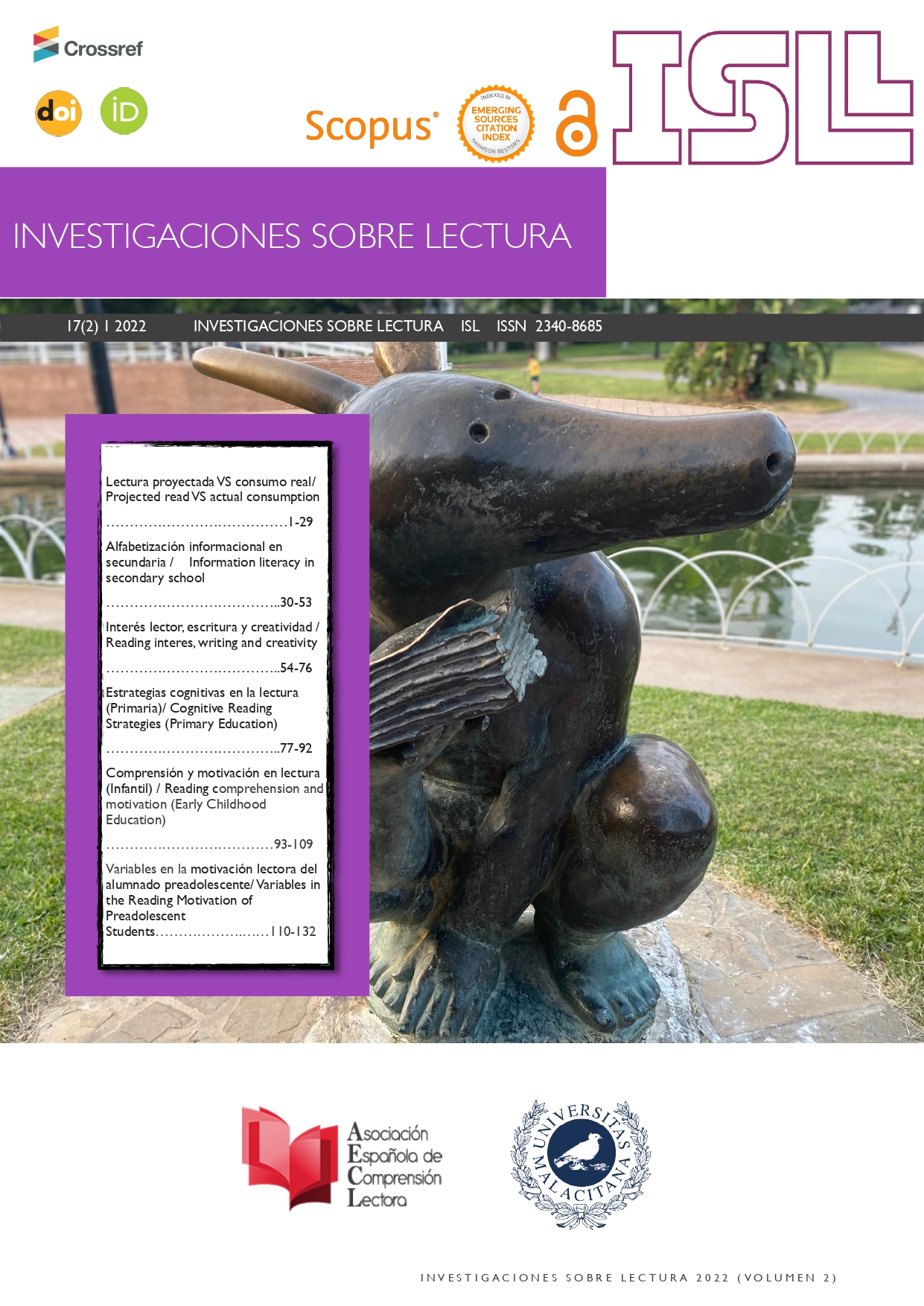




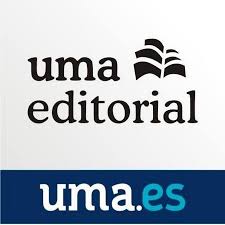
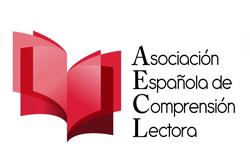
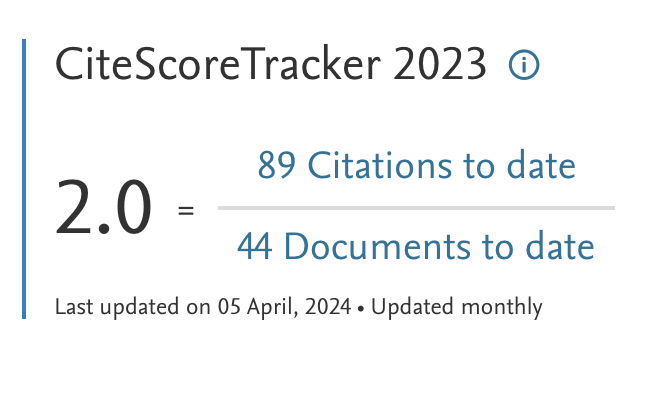
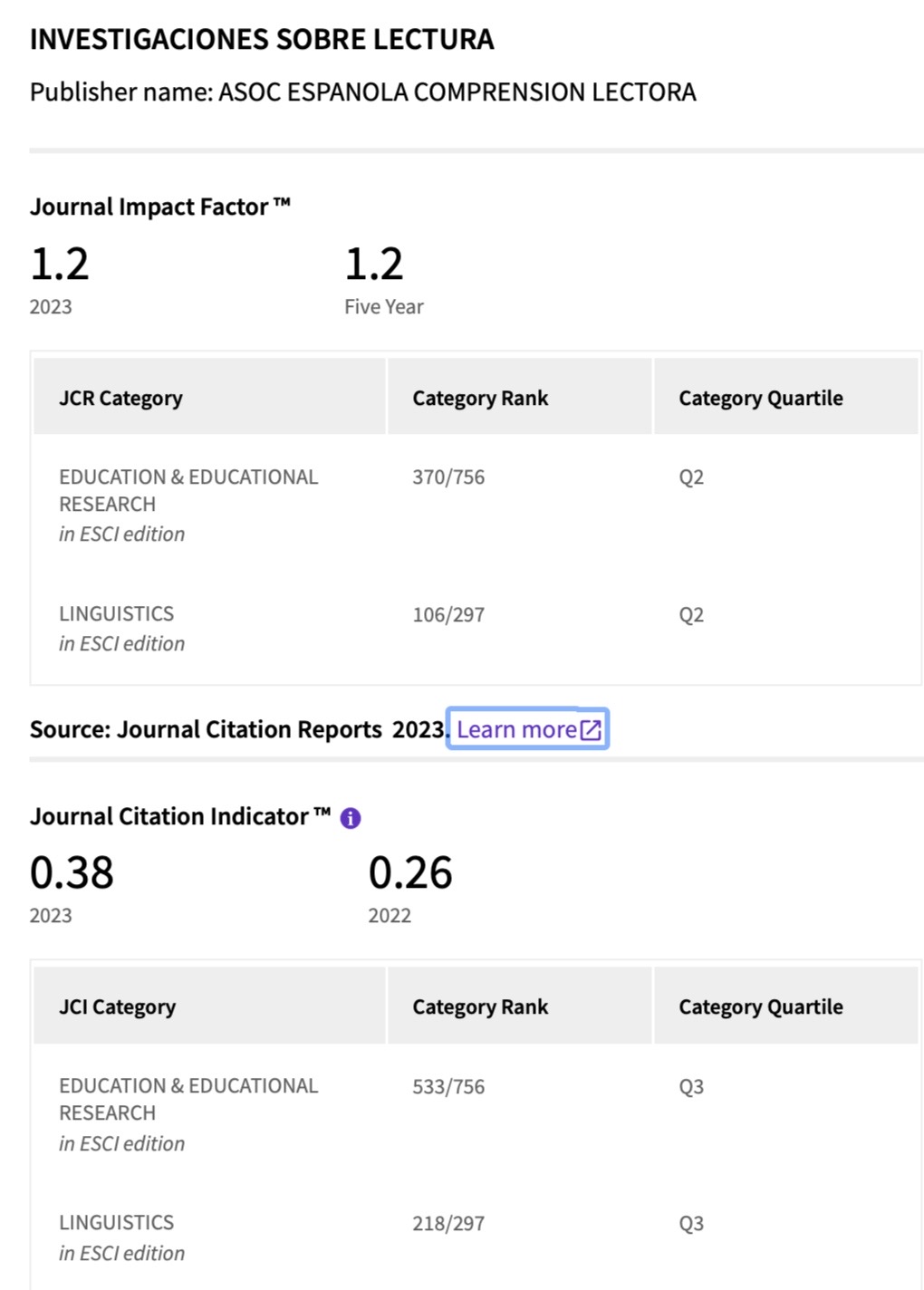
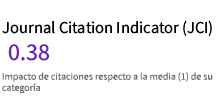
31.png)









